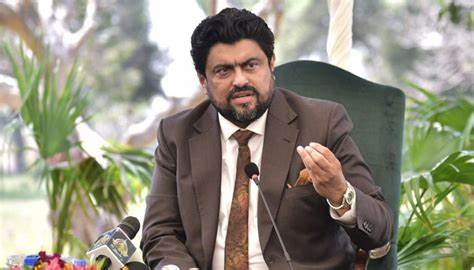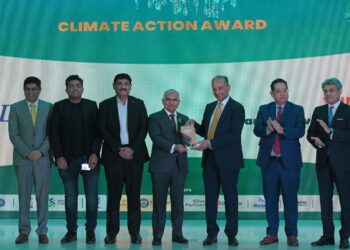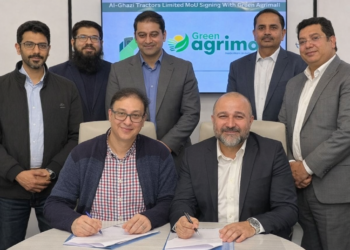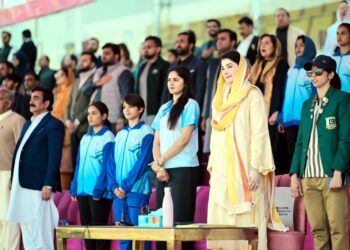Karachi, The political landscape of Sindh is set for another important development as Sindh Governor Kamran Khan Tesori officially summoned the Sindh Assembly session on Friday, July 25, 2025. The session, which will take place at 3 PM in the Assembly Hall, comes under the provisions of Article 109(a) of the Constitution of Pakistan, which empowers the Governor to call an assembly session at his discretion.
This upcoming session is particularly significant as it will be the first regular assembly sitting after the budget session, marking a return to routine legislative business, including the presentation of key committee reports, discussions on pending bills, and debates on the current political and administrative climate in the province.
Understanding the Legal Basis: Article 109(a) of the Constitution
To comprehend the authority exercised by Governor Kamran Tesori, it is essential to understand the constitutional framework. Article 109(a) of the Constitution of Pakistan states:
“The Governor may, from time to time, summon the Provincial Assembly to meet at such time and place as he thinks fit…”
This provision allows the Governor to independently summon the assembly, especially in scenarios where urgent matters of legislation, governance, or provincial stability require attention. Such powers are typically used in consultation with the Chief Minister or when legislative activity must resume following special or budget sessions.
Session Timing and Venue Confirmed
According to official sources at the Governor House, the Sindh Assembly session will begin at 3:00 PM on Friday, July 25, and will be held in the provincial legislature’s Assembly Hall in Karachi. Formal notifications have already been dispatched to all sitting members of the Provincial Assembly (MPAs).
Assembly staff have been instructed to ensure all logistical and administrative arrangements are complete in time for the scheduled meeting. The Speaker of the Sindh Assembly, along with secretariat staff, has started preparing the agenda documents, committee reports, and the roll of bills likely to be taken up during the session.
Agenda Overview: What to Expect in the Upcoming Session
While the official agenda will be formally shared before the assembly meets, credible sources from the Governor House and the Sindh Assembly Secretariat suggest the session will cover several key areas:
1. Review of the Political and Administrative Situation
The session is expected to open with deliberations on the current political and administrative climate of Sindh. These discussions may include:
- Governance challenges in urban and rural areas
- Recent law and order incidents in Karachi and interior Sindh
- Development delays in provincial mega-projects
- Political coordination between Sindh and the federal government
2. Post-Budget Evaluation
With the 2025–26 provincial budget recently passed, this will be the first session to assess the implementation of budgetary allocations. Legislators are likely to:
- Question ministers about disbursements and priorities
- Raise concerns about constituency-level development delays
- Seek clarity on tax reforms, subsidies, and relief initiatives
3. Committee Reports
A significant portion of the session will focus on presenting and debating committee reports, including:
- Public Accounts Committee (PAC) audits
- Standing Committee reports on Health, Education, and Law
- Environment and Urban Planning reports
- Agriculture and Irrigation performance updates
These reports provide oversight of government departments and help ensure transparency in spending and administration.
4. Pending Legislation and New Bills
Several pending bills may finally come under discussion, such as:
- Sindh Local Government (Amendment) Bill
- Sindh Water Regulation and Drainage Bill
- Women Protection and Domestic Violence Bill
- Digital Governance and Cybersecurity Framework for Sindh
In addition, the session may see the introduction of new private member bills addressing issues such as:
- Job quotas for minorities and differently-abled persons
- Access to quality education in remote areas
- Regulation of private housing schemes and real estate fraud
Significance of the Session: A Shift Toward Legislative Normalcy
The July 25 session holds importance beyond routine legislative duties. It signals a return to legislative normalcy following a politically charged and budget-centric few months. Experts suggest that the session will help reset the provincial agenda and improve the governance dialogue between opposition and treasury benches.
Political Analysts’ Perspective
According to senior political analyst Dr. Nusrat Jafri, “Summoning this session reflects an attempt by the Governor and the Sindh Assembly to re-focus on structural governance issues. After budget fever, it’s critical that committee work and lawmaking proceed to address growing public concerns.”
Provincial Politics: Key Players and Party Positions
The Sindh Assembly is currently dominated by the Pakistan Peoples Party (PPP), which holds a majority, followed by members from the Muttahida Qaumi Movement–Pakistan (MQM-P), Pakistan Tehreek-e-Insaf (PTI), GDA, and several independent candidates.
PPP’s Likely Focus
As the ruling party, the PPP is expected to:
- Highlight development work and budget execution
- Introduce fresh legislation supporting social welfare programs
- Defend its handling of provincial challenges, such as education and healthcare
Opposition’s Anticipated Role
Opposition parties, particularly MQM-P and PTI, are likely to:
- Criticize the government for governance failures, especially in Karachi
- Question the transparency of fund allocations
- Demand updates on employment schemes and infrastructure promises
Security and Media Arrangements
Given the sensitive nature of some discussions expected in the assembly, security arrangements have been intensified. The Sindh Police and Rangers will secure the Assembly building and surrounding roads on July 25.
In line with parliamentary transparency:
- Accredited media representatives will be allowed inside the press gallery
- Live coverage may be available through the Sindh Assembly’s official social media platforms
- Summary reports and proceedings will be published online after the session concludes
Public Expectations and Civic Concerns
Citizens, especially those living in urban centers like Karachi, Hyderabad, and Sukkur, are hoping for:
- Legislative actions addressing power outages, water shortages, and rising crime
- Policies to curb urban flooding ahead of the monsoon peak
- Effective management of public transport and traffic chaos
Civic bodies and local government associations have submitted proposals and suggestions ahead of the session in hopes that provincial lawmakers will incorporate them into decision-making.
The Road Ahead: How This Session Could Shape Sindh’s Political Direction
The July 25 Sindh Assembly session, though formally regular, carries the potential to reshape policy discussions for the second half of 2025. With elections always looming on the political horizon, parties may use this platform to demonstrate their performance or launch strategic criticisms.
A productive and consensus-driven session could:
- Improve governance coordination
- Boost investor confidence in Sindh’s administration
- Help introduce much-needed reforms in public service delivery
Conversely, if marred by political infighting or walkouts, it may further erode public trust in democratic institutions.
Conclusion
As Sindh Governor Kamran Tesori exercises his constitutional authority to summon the Sindh Assembly session on July 25, 2025, political observers, legislators, and citizens alike await what could be a pivotal moment in provincial governance. With pressing legislative matters, budgetary oversight, and committee accountability on the agenda, the session presents a valuable opportunity to set the tone for responsible governance in Sindh.
This development reaffirms the importance of institutional continuity, parliamentary oversight, and policy responsiveness in a province that continues to grapple with complex challenges ranging from urban planning to rural development.
























